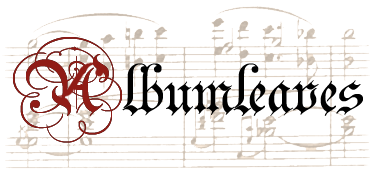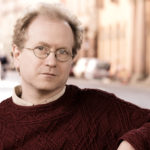In 1825, Joseph Böhm was the first violinist of the Schuppanzigh Quartet. He relates this anecdote.
The unhappy man [Beethoven] was so deaf that he could no longer hear the heavenly sound of his compositions. And yet rehearsing in his presence was not easy. With close attention his eyes followed the bows and therefore he was able to judge the smallest fluctuations in tempo or rhythm and correct them at once. At the close of the last movement of this quartet [Op. 127] there was a meno vivace, which seemed to me to weaken the general effect. At the rehearsal, therefore, I advised that the original tempo be maintained, which was done, to the betterment of the effect. Beethoven, crouched in a corner, heard nothing, but watched with strained attention. After the last bow-stroke he said, laconically, “Let it remain so,” went to the desks and crossed out the meno vivace in the four parts.
–reproduced from Lewis Lockwood’s Beethoven: The Music and The Life, p. 352


